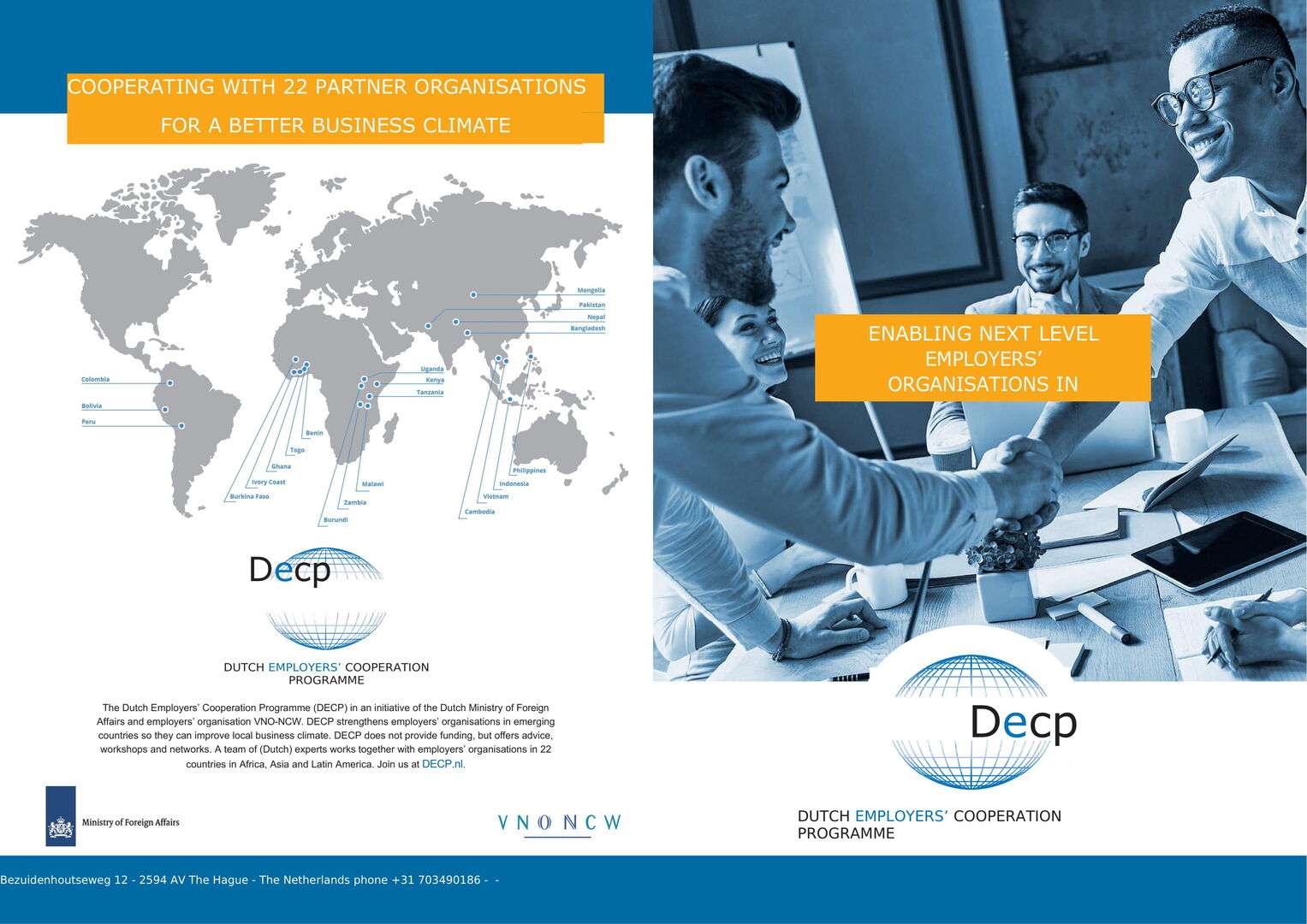

Explore our publications
Skills development - a shared responsibility of government and companies
Quality education, and in particular vocational education and training (VET), is an important precondition for economic growth. This certainly applies to developing countries, where good education and access to it cannot be taken for granted. Employers are often hindered by a 'skills gap'; employees are not or are insufficiently equipped for the work that they will do. One of DECP's areas of expertise is skills development. An exploration of its (22) partner countries shows that private companies themselves can do a lot to close the skills gap – a lot, but not everything.
DECP wrote an article on this topic together with an expert on skills development of NIR (Sweden) and a French master student who dived into this issue in the Democratic Republic of Congo. Skills development. A shared responsability
Entrepreneurial Ecosystems in Emerging Countries
For the Dutch Employers' Cooperation Programme (DECP) and PUM it is of great importance to explore entrepreneurial ecosystems (EE), as their focus is on strengthening employer organisations in emerging countries to improve the business climate. EEs already exist in some well-established areas and sometimes grow by coincidence, but this can be influenced on purpose. Some of these well-established EEs are Brainport Industries in the Netherlands, Metropole Lille in France and Silicon Valley in California.
A team master students from the Maastricht University performed a research project. What development phases do entrepreneurial ecosystems go through? Which competencies are involved? What can DECP-PUM do to influence the growth of such systems?
Read more about it in this article: Entrepreneurial ecosystems and competencies
Strengthening the social dialogue. Customization per country and per sector
Every country is different. This is also true for any form of social dialogue. This is why DECP does not present a blueprint for the way in which social partners in countries and sectors should organise the social dialogue, but offers inspiration to explore the possibilities for a dialogue and to get started with it. The focus is not so much on the content, but on the organisation and strengthening of the dialogue process and the negotiating skills of the participants in that process. In the early years, DECP mainly focused on the social dialogue at national level, but in recent years the need for support focused on the dialogue at sectoral level has also increased. There are several reasons for this. The first is that the social dialogue at national level often requires deepening and concretisation at the sectoral level. Secondly, it is precisely the sectors that face major challenges, for example when it comes to increasing the sustainability of value chains and tackling risks such as child labour. Finally, a strong dialogue at sectoral level increases the legitimacy of the sector and the relevance of the sector organisation. For this reason, DECP now also focuses on advice and training aimed at sectoral consultation between trade unions and employers
An extensive very enlightening brochure has recently been published in English, French and Spanish. We would like to recommend that you take note of these insights.
English version: Reinforcement of social dialogue
French version: Renforcement du dialogue social
Spanish version: Fortalecimiento del diálogo social
